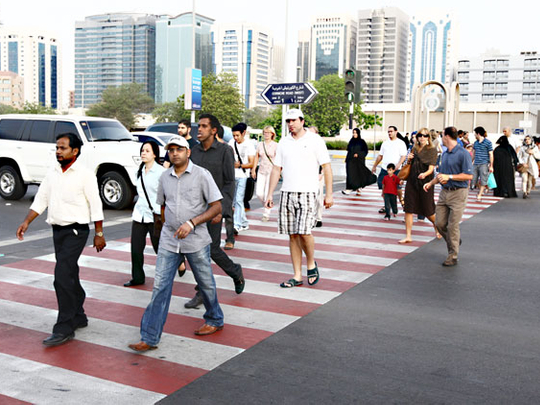
Economic changes resulting from recessions and crises usually leave social and structural impacts on important sectors of society, affecting both living standards and their requirements of people in those sectors.
The social repercussions of the global financial crisis, which hit the world three years ago, are still being felt and have led to a reduction in living standards of many people, especially in poor countries. The consequences and effects of the crisis have varied from one country to another, depending on financial capabilities and demographic.
In the Arab world, these negative effects — along with other factors — have played a major role in the political events that swept the region last year and the beginning of this year.
In terms of the severity of these impacts, Arab countries are divided into distinct groups: first, the poor countries such as Tunisia and Yemen, as well as those rich states where the economic system does not meet the needs of its citizens, like Iraq and Libya.
The second group is represented by the countries of the GCC, which enjoy high living standards and offer quality services to their citizens. That is not to say these countries have not been affected by the crisis — investors, especially small ones, lost much of their savings in the collapse of local stock markets, which are considered the key channels of investment in these countries.
Indeed, it is the middle class that has been the worst affected by the financial crisis. The middle class is exceptionally important to all economies, acting as a balance between other social classes, and hence any negative effects on this strata of society will usually leave deep and significant consequences on society as a whole.
Hit exceptionally hard
During the financial crisis, the middle class in the Gulf was hit exceptionally hard by the fall in trading volumes and a general negativity in local equity markets. Some small investors lost between 70 and 90 per cent of their investments in the GCC markets after the prices of some companies fell by as much as 80 per cent from their IPO prices. For those who purchased their shares after IPOs, losses were almost double.
There has been no logical justification for the sharp fluctuations in prices on the Gulf's bourses over the past three years. But it is clear that the spikes and speculation before the crisis and the declines since reflect the immaturity of these markets.
Recent government measures, such as significant pay hikes, have compensated a certain segment of the middle class which works in the public sector, but the other portion of this social segment — including small investors, traders and the retired — still suffer from the decline in their investment returns, which comprise a large percentage of their total annual income.
Something clearly needs to be done to help these individuals, because the stability of the middle class is extremely important to society as a whole.
It was expected that the ongoing oil price increases and high growth rates in the GCC would lead to an increase in the middle class, and, consequently, its positive role in the stability of the GCC countries. These forecasts were based on comparisons between the countries of the Gulf and emerging economies such as China, India and Brazil where the middle class has swelled as economic development has increased.
Unfortunately, this has not been the case.
Consider the fact that in Latin America, where there are both emerging and oil-producing countries, 56 million families joined the middle class over the past 15 years. The growth of this social sector has clearly mirrored the positive conditions of these economies.
There is no logical reason why, in a time of growth in the GCC both in terms of oil and in other sectors such as tourism, property and trade, the volume and influence of the middle class has declined.
In fact, the GCC countries have the tools and financial capacities that qualify them to address this phenomenon, without creating another bubble in the bourses or capital markets. Key to this is creating a balance in the financial and real estate markets, keeping prices at a level that demonstrates the true value of assets and companies listed on local exchanges.
The real economic returns for investors and the actual performance of listed companies, which have seen a terrible decline in their prices, need to be clear.
Qatar's solution
A solution to this problem has been seen in Qatar, where institutional investment is supported by the state, which invests in local stock markets and recently acquired a significant portion of bank shares. This step has undoubtedly helped the Doha Stock Exchange regain some momentum, as well as helping the country's investors, who are largely middle class.
The gain in performance by Qatar's Stock Exchange is clear evidence that this approach works. The Doha Stock Exchange was the best performing stock market in the Gulf in 2011. Meanwhile, the other GCC stock markets ended 2011 on a lower note not because of the bad performance of listed companies, but due to lack of trust, speculation and an absence of institutional investment.
If directing institutional investment towards foreign markets is a significant strategic approach that is aimed at diversifying state assets, then domestic institutional investment needs to be part of investment strategy as well. It is of paramount importance for growth and stability of the community, especially the stability of the middle class.
This is a strata of society, which, after all, contributes substantially to the development and progress of the GCC by being the most educated, dynamic and technologically savvy sector of society.
Dr Mohammad Al Asoomi is a UAE economic expert and specialist in economic and social development in the UAE and the GCC countries.












